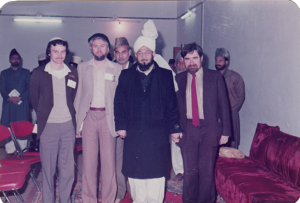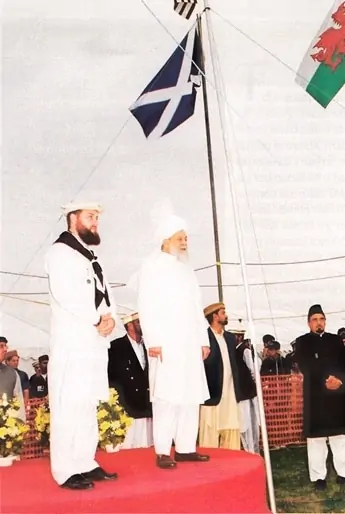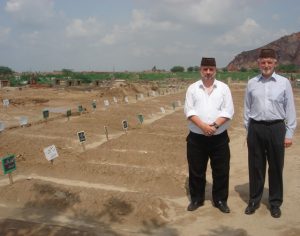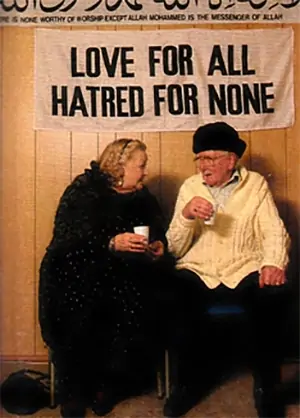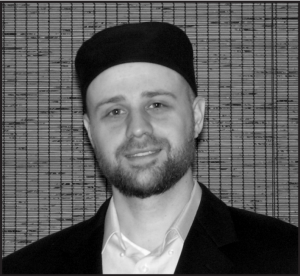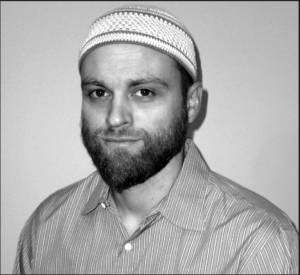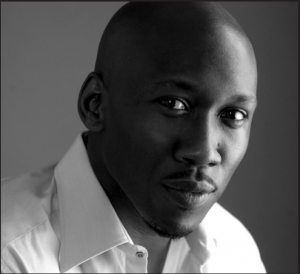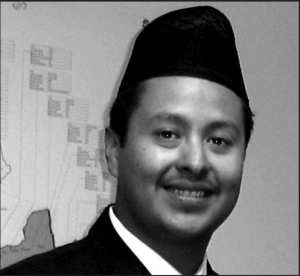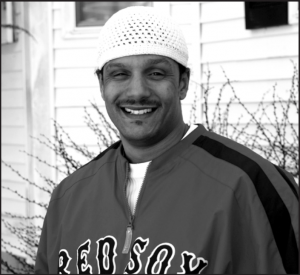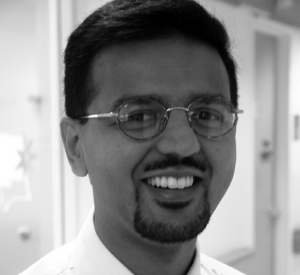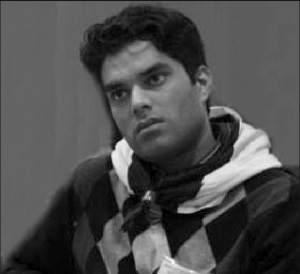His Holiness Mirza Ghulam Ahmad (1835-1908)
The Promised Messiah & Mahdi
Founder of the Ahmadiyya Movement in Islam
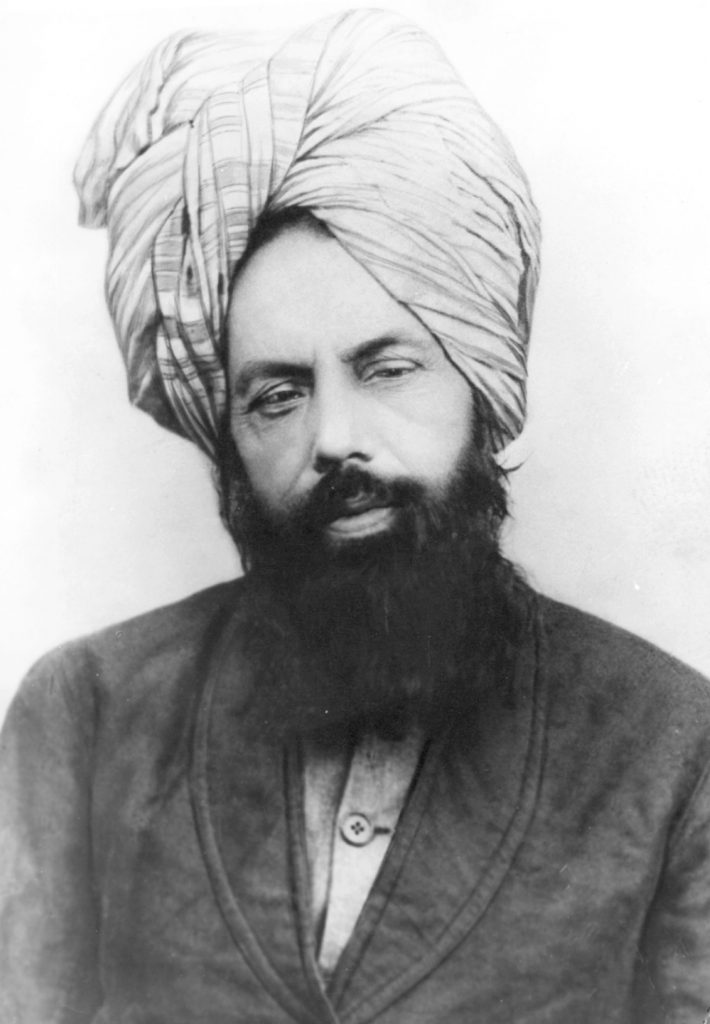
Introduction
We at Rational Religion are Ahmadi Muslims.
Islam Ahmadiyya is a revivalist movement within Islam that is seeking to return Muslims to the peaceful, rational teachings of true Islam. We believe that Islam is the final and complete religion from God, revealed by the greatest Prophet, the Prophet Muhammadsa.
We believe that the Prophet Muhammadsa perfected the messages of the spiritual teachers before them, be they Moses, Jesus, Krishna, Buddha, Socrates, Confucius, Lao Tzu, or countless others, peace be upon them.
Mirza Ghulam Ahmadpbuh, who founded the Ahmadiyya Muslim Community in 1889, claimed to be a Reformer for this age, a follower-Prophet subordinate to the Prophet Muhammadpbuh.
Under divine direction, his mission was to restore rational beliefs to the religious and non-religious worlds, to fix the disconnect between creation and Creator in this age, and to foster the love of humanity in the hearts of all. In little over 100 years the community is all over the globe, with tens of millions of members, and ~1/2 million new converts each year.
Why has the Ahmadiyya message resonated so well when religion is largely on the retreat around the world? Perhaps because Ahmadi Muslims…
- Reject all forms of terrorism
- Endorse a non-violent jihad of the pen
- Support the separation of mosque and state
- Support universal freedom of conscience for all (including those who leave Islam)
- Support freedom of speech for people of all belief systems
- Support the education & empowerment of women
- Believe in all the verses of the Quran
- Reject all ahadith (narrations) that contradict the Quran
- Reject the prevailing ideas of a ‘Bloody Messiah’
- Believe that ‘love of one’s country is part of one’s faith’
- Believe true science and true religion are not contradictory
- Believe that life on Earth evolved as a result of a guided process
You can find out more about many of these true Islamic teachings at our sister platform, True Islam.
Click here to find lots of videos and articles from Rational Religion of convert stories.
On the page below, we have compiled extracts of the accounts of many converts to Islam Ahmadiyya from other websites. They are just a small sample of real stories from real people, and are well worth a read!
The original accounts may be found in By the Dawn’s Early Light: Short Stories by American Converts to Islam, the Converts Stories section at whyahmadi.org.
Convert Stories — Video Playlists
This first playlist contains 23 English-speaking videos of varying lengths. Watch through and find your soul inspired!
This next playlist has 112 video stories of converts, courtesy of the monumental efforts of Razi over at Ahmadi Answers, both in English and Urdu. The Urdu videos are subtitled in English.
Individual Convert Stories
In this section, we want to showcase many of the written accounts of those who have joined the Ahmadiyya Muslim Community.
Bashir Ahmad Orchard (UK)
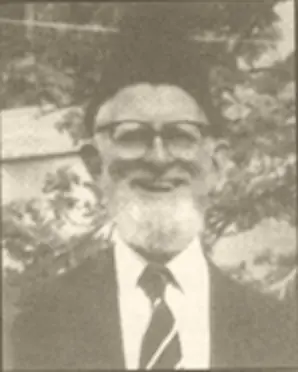
The aforementioned event took place in 1944, in which year deeper spiritual inclinations seemed to awaken within me. I was never much influenced by Christianity. I had become quite enchanted with Hindu literature and a close friend of mine was a Brahmin. As yet I had not been attracted in any way towards Islam although I did enjoy reading about the lives of the Moghul emperors in Glimpses of World History by Pandit Nehru.
Right up to that time my enjoyment in life was more or less the same as most young men. At sixteen I had become a regular drinker and smoker. Gambling was in my blood. When I was eighteen I had a temporary craze for dancing and, of course, I enjoyed going to the cinema and theatre. Although smoking is not specifically forbidden in Islam and may be considered a lesser vice, it was the hardest of them all for me to overcome. Nevertheless the physical and spiritual benefits gained from discarding that obnoxious habit have been immense…
An Ahmadi sergeant who was also serving in my unit concluded, for reasons best known to himself, that I might be a person to whom he could introduce the message of Islam. His name was Abdul Rahman Dehlvi. There were also a number of other Britishers attached to the same unit, but as far as I know, he never approached any of them. Naturally he had to exercise diplomacy in view of the fact that I was commissioned officer with whom it would not be normal to discuss or propagate freely his religion. He arranged for a copy of the ‘Philosophy of the Teachings of Islam‘ by Hazrat Mirza Ghulam Ahmad to be sent to me from Qadian…
The highlight of my two-day visit was an audience with Hazrat Mirza Bashiruddin Mahmood Ahmad, the Khalifa and the supreme head of the Jama’at Ahmadiyya. This was a memorable event…I was impressed most of all by his luminous countenance, which radiated an intangible spiritual light, which seemed to shine from his face and when he spoke, a charming smile animated his face. He was an embodiment of energetic repose, radiating physical, intellectual and spiritual magnetism, which captivated all within his presence. I realized that I was in the company of no ordinary person…My knowledge of Islam at that time was negligible, but I reasoned, that if these people were fruits of the faith, then it certainly had something to offer. I was in search of the truth and later I was to realize that I had found it in Qadian.
A notable event took place in my life in the evening after my departure. I was waiting on the station at Amritsar which is a town about thirty miles from Qadian. While waiting for my connection, I joined some other officers for drinks in the refreshment room. I was suddenly overcome with a feeling of aversion. The atmosphere seemed repulsive compared with the holy atmosphere of Qadian. There and then I resolved to forsake drinking once and for all. One of the first things I did when I rejoined my unit on the Burma front was to throw away all the bottles of alcohol I had in my possession… I used to gamble on horses, greyhounds, dice and card games. Once when stationed at Imphal I lost a month’s pay gambling on cards with officers. These were the first two evils from which Islam rescued me….
Prior to my acceptance of Ahmadiyyat, I used to contribute nothing in the way of God or towards charity. Islam taught me the philosophy of giving in the way of Allah. Sacrificing what one loves for the sake of Allah wins the pleasure of Allah and earns one abundant reward. I commenced by paying one sixteenth of my income and later increased it to one tenth (Al-Wassiyat). Finally in 1967, I commenced paying one third and have been doing so ever since. Despite the fact that I enjoy only a meagre income, life is good to me in every respect…
Ahmadiyyat introduced into my life the regular observance of daily prayer which have proved a source of great blessing and comfort to me, testifying to the truth of the verse in the Holy Quran:
It is only in the remembrance of Allah that hearts can find comfort.
Quran (13:29)
I am still novice in the art of prayer. Prayer is more than a routine habit. I have gained much on the subject from the writings and discourses of the Promised Messiah may peace be upon him. They have been a source of inspiration to me…
Everybody dreams. It is a normal function of the body. Investigators have ascertained that even animals dream. Since time immemorial, God has revealed Himself through the medium of dreams. The Holy Qur’an and earlier scriptures abound with incidents of people to whom God communicated knowledge, messages and future events through dreams. I do not recall the details of any dream before the time I accepted Ahmadiyyat. Since then, however, I have had many dreams, which I have never forgotten. Throughout the years they have remained with me as fresh and clear as at the time I received them.
Read more about Bashir’s story here.
Jonathan Butterworth (UK)
Selma Mubarika Khan (UK)
I was brought up in a Christian Household in Yorkshire, England… I became a Sunday school teacher on reaching my teens and at times attended weekend Christian prayer groups when I was about sixteen or seventeen years old. We were given talks and film shows of missionary work in the Zambezi Valley of Africa.
[…] I met in the course of my work [nursing], a young doctor. Whilst we were ‘crowing’ about our success, he quietly used to say ‘Alhamdulillah’.I asked him what that meant and when he told me it meant ‘all praise belongs to God’, I felt rather ashamed but agreed he was right. Further conversations followed when we found time and he revealed he was a Muslim. I felt ‘what a pity, what a great pity, that such a nice religious boy hadn’t been introduced to Christianity’. How little I knew! He was far too clever and learned for me! He said to me that if I could convince him of the truth of Christianity and its superiority over Islam, then he was prepared to accept it. He knew full well it was a ‘Mission Impossible’. However I didn’t and with missionary zeal I launched on his conversion. After all, why not practice before going to Africa?How soon the tables were turned. At first I was cross, then furious that there were so many basic questions I could not answer. I had never understood Trinity, and had dismissed it as unimportant until then…One by one I went through spokesmen of all the major Christian Churches. No one was able to answer my questions on Trinity or atonement satisfactorily. They would simply say ‘We will pray for you sister. Have faith and believe.’ I realised now that my faith in Christianity was really reduced and the result was that I was extremely angry.
I read [rather] reluctantly, Islam, the small booklet called ‘Death on the Cross’ by Maulvi Abdul Atta Sahib, which shattered my last hopes of clinging to Christianity. I began to be honest with myself and I prayed for help and guidance. In my heart I already accepted Islam, the Holy Prophet and the Promised Messiah, peace and blessings be upon them. It was a revelation to learn that Islam was the youngest of the revealed books of God. I realised I had been reading old, out of date stuff, not the latest up to date guidance send by God through a Messenger for our time.
When I was about ten years old, I was with my grandfather after he had given the evening sermon in a small country Chapel… I clearly remember somebody saying that if Jesus came now we would not reject him as the Jews did. Another church member mentioned about a man in India who claimed to be the Promised Messiah and made a derogatory remark. My grandfather quietly said ‘how do we know he is not?’ That memory came back to me just when I most needed reassurance and I felt that had my grandfather been alive he would have supported me.
Read more about Selma’s story here.
Ann Patricia Samia Sheikh (UK)
My husband was a big influence as to why I converted to Islam, because I saw the way he lived; it was beautiful and played a big role for me to convert to Islam.
Converting to Islam changed the way I lived my life. Instead of going to church weekly, I started to pray five times a day at home. My dietary habits changed. I wouldn’t drink on celebratory occasions, instead I thanked God for everything I have and all of His blessings that He gave me. Soon I saw a dream, details of which I have not discussed with anybody, but it convinced me that conversion to Islam and Ahmadiyyat was the correct course for me. I have been a Muslim since then, by the Grace of Allah. Initially my husband and his father guided me towards Ahmadiyyat. Later on I met other Ahmadis and my knowledge gradually started to increase with talking to other Ahmadi Muslims and reading a lot of literature.
Read more about Ann’s story here.
Nasir Ward (UK)
My father lived a normal British life, his interests were reading books, traveling and gardening.He was a person who was always thinking about the world around him and considering the system of things. So perhaps it is this quest for knowledge and a broadminded attitude towards new cultures and beliefs, which led him towards Islam…more than anything my father was an independent thinker. He would consider all sides of an argument before reaching a conclusion and in studying Ahmadiyyat the conclusion he reached is that the Qur’an and the claims of the Promised Messiah were true.
My father was working with another Ahmadi teacher who would offer him a [lift] home. After the lift my father, wanting to be polite, would invite him in for a cup of tea. It was at these times that they began to talk about religion in general and Islam. My parents were given books of Ch. Muhammad Zafarullah Khan Sahib and others. They were impressed with what they read, continued to read and finally accepted Ahmadiyyat.
…it gave him a respect for God and for the message of religion. My father studied all religions through the lens of the Holy Qur’an. He saw truth in scripture because he always took the Qur’an as his starting point. He had no doubt that Islam was true.
Read more about Nasir’s story here.
Muzaffar Clarke (UK)
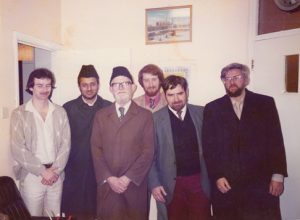
…I did not believe that Jesus was God. And I did not believe a just and merciful God could have allowed him to die on the cross. Even when I was very young I asked the nuns and priests to whom Jesus was praying to in the garden of Gethsemane? Why was he asking God to save him, if he was God himself? They could not or would not answer the question and told me that I need not ask such questions. That just made me even more doubtful. I was amazed when these people [Mr and Mrs Malik] who had come from the other side of the world, starting to tell me about their belief in Jesus or Hazrat Isa pbuh (peace be upon him) as they called him. They said that Jesus pbuh was a human being and he was also a prophet of God. That he was definitely not God Himself, and they also did not believe that Jesus pbuh died on the cross. I was completely stunned by this! How could these people who had come from the other side of the world, believe the same things that I did? I knew nothing about Islam, and yet here my views were being reflected back at me as if I was looking into a mirror. This came as a great shock and also a wonderful surprise to me.
I was privileged to meet [the third khalifa] later at the London Mosque. His bright pink shiny face overwhelmed me and this luminous milky glow that seemed to come from his face into the air around him. I can only describe it as a spiritual experience and I was convinced that this man was different to any other man that I had ever met. I could tell that he was a very special person and true spiritual leader. This increased my desire to know more about the Ahmadi community and I asked the Malik family many questions and had many meetings with the Imam, Maulana Bashir Ahmad Rafiq and the then deputy Imam, Maulana Ataul Mujeeb Rashid. Over the course of several meetings I had asked some very difficult questions about Islam and Ahmadiyyat. I made my questions difficult because I really wanted to find out the answers. Thank God they are able to answer all my questions.
I felt emptiness inside like a black hole; there was something missing. I joined an historical re-enactment society to help fill the hole…but it was not enough. The black hole needed to be filled by something more…I wondered what the purpose of such a life was and whether or not people could ever really be happy. I fell asleep and had a strange dream. I saw that I was sleeping on the bed and that my body rose off the bed. I was looking down and I could still see myself on the bed, but separate from my body. I floated out of the room and then I floated into the church where I had been previously and when I looked down I could see everything in the church including the lady’s head, she had bright ginger hair, and it looked like a red circle from the up above. I was still suspended above the scene and I floated out of the church and back into the room where my body lay. I was able to look down at my body on the bed and somehow I re-entered my body as it lay on the bed. After this I awoke and was looking up at the ceiling, towards the electric light bulb.
The filament inside the light bulb seemed to be spelling out a name and the name it was spelling out was Allah.
I put my hands up to my face and I could see the light reflecting on my palms. I could see this with my eyes and it was happening in front of me. This was not a dream. Then the whole room was bathed in light and at some point I felt heaviness on my shoulder, it felt like someone had placed a hand on me, a comforting hand. And then I felt a shockwave go through me right through my head to my feet.
Read more about Muzaffar’s story here.
Tahir Selby (UK)
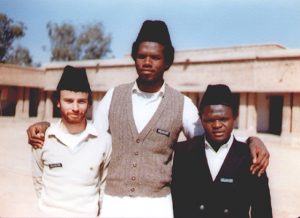
I was totally not interested in religion at all. I wasn’t the type of person that dismissed God. But I always thought to myself that there was never a point in being righteous because at the time, I was young and I was enjoying life. So I felt that for me to follow religion was restricting myself and I didn’t want those restrictions for myself. I wanted to be free and enjoy my life. So at that time there was no part for God in my life…My understanding about God and religion [changed] and now I started to understand what was the real purpose behind religion, that it was not something to restrict you; but to guide you, to help you become a better person, to help you develop your relationship with God.
Read more about Tahir’s story here.
Rafiq Mahmood (UK)
When I started visiting churches, particularly Catholic Churches where there are a lot more graven images than anywhere else, I saw people bowing down in front of an image of Jesus on the cross! I felt that this was complete disobedience and hypocrisy. I thought to myself that this was not acceptable. What I also found very hard to accept and to believe that anyone else could accept was that ‘how a man could be God!’ It was and is a bizarre and obscured belief to me. My father taught me that we have to test everything and not accept what other people say blindly and make our own decisions in life. He told me very strongly that ‘it doesn’t matter what you do as long as you are true to yourself and as long as you believe that what you are doing is right.’
I found it very hard to accept that other people would accept a human being as God. It was as though there was a structure that had an empty belief which nobody really believed in. I remember once seeing a programme on television about Islam and the Kalima. (I remember I was very young then). When I heard the Kalima for the first time I thought to myself that ‘yes the first part makes sense obviously’ (‘There is None Worthy of Worship except Allah’) and I thought to myself that surely everyone could believe in that. But I wasn’t sure about the second part that ‘Muhammad, pbuh, is the Messenger of Allah’ because I didn’t know!
I used to run a little magazine…I used to prepare this magazine on wax paper, which is very old technology now, but I didn’t have the machinery required to print the magazine. I was always asking people to help me so I could run this magazine…Then I had the idea that I should ask my friends from different religions. I told them that I would give them an opportunity to write an article about their religion in my magazine.
There were three boys in my class, one was an orthodox Jew, another was a liberal Jew and the third was a Muslim. The first boy I asked was the orthodox Jew. First I greeted him with their Jewish greeting word ‘Sholom’… he got very angry with me and told me that I was a Gentile so I wasn’t allowed to say ‘Sholom’.Then I asked my liberal Jew friend. He told me that they were liberal Jews and that he didn’t really know that much about his religion and therefore wouldn’t be able to write a very good article for me.
This is when I went to see the Muslim boy whose name was Arif Nasir. I greeted him with the Islamic greeting of ‘Assalaam-o-Alaikum’ to which he replied with ‘Waalaikum-Asalaam’ and I asked that did he not mind me saying the Islamic greeting to him? He told me that he was very happy. I asked him about the article and he told that it was great what I was doing and he would be more than happy to help.
After a while I got in the habit of going to the mosque and taking part in the Sunday Seminar…the purpose of this was to get young people to talk about any subject under the sun, whether it was politics, current affair or religion; whatever it may be and to also bring in invited guests to present their point of view and to discuss and to try and bring the Islamic perspective to it. This was the bait and this was the hook and this is what caught me!
It took me about a year after which I was convinced intellectually that the Ahmadiyya interpretation of Islam was satisfying to me…One of the significant things in becoming an Ahmadi was a realisation that this is who I was and this is where I belonged. When I got the letter from the third Khalifa, may Allah have mercy on him, saying ‘I suggest that your name should be Rafiq Mahmood’, I was delighted. I learnt what this name meant and the realisation that I had at last an identity, a place, somewhere where I belonged. This had a very profound effect on me.
Read more about Rafiq’s story here.
Ibrahim Noonan (UK)
On my arrival in Tunisia, like most young Irish men I was unaware of the Islamic customs and traditions of purdah and separation of men and women, but this really had an impact upon me from a moral perspective. I was quite impressed… I admired it very much. It was during this time I heard my first ever Azan and I was spelled bound. I asked a local person, whose English was very good, what it was. And what did it mean? When he explained everything, I was overwhelmed by it all. I made my mind that when I return to UK I would pursue more about Islam.
When I returned to UK I was adamant to learn a lot more about Islam, I remember telling a Christian friend of mine whom I met in the World Wide Apostolic Church about my experience in Tunisia and he made a very interesting comment, he said ‘Muslims are the hardest to convert’! When I asked him why? His reply was more shocking, he said ‘because they really practice their faith and believe in it’. This really had a deep impact upon me.
There was an incident when I saw a young Muslim the same age as me then (22) he had a beautiful beard (long) and was wearing very simple clothes. He was asked about the nature of God according to Islam, he beautifully explained about tawhid. I was so impressed, that deep down I knew, I wanted to be a Muslim. The second incident which convinced me that Islam is what I truly wanted to follow.
When the Fourth Khalifa (r.h.) came in [to the Q&A marquee], he looked so beautiful and bright like a shining star. The Question & Answer had not begun yet just looking at him overwhelmed me….After the formalities the session started, each question was profound and the answers were astonishing. The Khalifa was able to answer every question with such authority, it was amazing. I could not keep my eyes off the Khailifa for a second.
I remembered the words of the great Maulana Bashir Orchard sahib ‘you can take the high road and read all the books or you can take the low road and pray for the truth’. I was given a janamaz (prayer mat), I put the Qur’an and the Bible on a shelf in front of me. I did not know the Arabic for Salat so I prayed in English and fell to ground in prostration and said “Oh God, I know you exist, and I know Satan is not more powerful than you, so when I pray to you, he cannot come to me before you, you say in the Qur’an, ‘make one step towards me and I’ll come running to you’ in the Bible it says ‘knock and the door will be opened.’
Oh God, I believe in Jesus, a noble Prophet and I believe that Muhammad pbuh is also a Prophet and I only want to follow the truth, so which of these two Prophets should I follow?”
“Oh God, Satan cannot get to me before you, so which of these prophets should I follow? If you don’t answer me than I’ll hold you accountable on the Day of Judgment.”
After this prayer I fell asleep and I saw my first real dream. I saw that I was praying in a church with other Christians and I stood up and turned to the east and raised my hands and said ‘Allahu Akbar’ and I fell in prostration, also seven other Christians stood and turned to the east and said ‘Allahu Akbar’ and fell in prostration.
I was now fed up [after reading allegations against Ahmadiyyat], was Ahmadiyyat true or not? I took my Janamaz [prayer mat] and fell in prostration and cried in anger and said ‘Oh God, I have no time for this! If Hazrat Mirza Ghulam Ahmad is true and he is the Messiah and Mahdi, then I want to see him.
That night after sleeping I saw the Promised Messiah pbuh in front of me and he said ‘Ahmadiyyat is Islam and Islam is Ahmadiyyat’. He then said ‘if you are ever in doubt again pray in this position, and I saw the Promised Messiah pbuh fall in prostration’. When I woke up I was sweating and I realized that Ahmadiyyat is the true Islam. Alhamdulillah.
Read more about Ibrahim’s story here.
Bilal Atkinson (UK)
You may think it strange that I was only introduced to this God in such a comparative short time considering my age. From birth I was raised as a Christian, a Church of England Christian and at the age of eleven I was confirmed into the Faith after having studied the Bible and other religious books. I certainly believe in God and truly thought that Jesus Christ was indeed the literal Son of God. It was what my parents believed and their forefathers before them. I had no reason to doubt them, at least at that age.
As I grew into my teenage years I could not understand the Christian dogma of Father, Son and Holy Ghost, more commonly known as the Trinity. No one could explain to my satisfaction why there had to be three persons who represented one God.
In my twenties, I became more attracted to the worldly life, marriage and my employment. I still believed in God, but one God and not the Trinity. I very rarely went to the Church.
In my mid thirties I became disillusioned about the state of the world, it seemed to be in such an upheaval with wars, famines, industrial unrest, poverty and most of all immorality and greed. The world was rapidly changing, changing the course of people’s lives, although sometimes not for the better…
Some months later during the course of my employment, (I was a Police Officer, specialising in Forensic evidence) I was invited by a third party, to the home of the Police Surgeon, a local GP called Dr Hameed Khan, who had found out that I was interested in religion. I had known and worked with this man on a professional basis for almost ten years. He had never spoken to me about religion before and I thought it was very strange thing for him to invite me to his home. He was a man from Pakistan and was also a Muslim.
To tell you the truth I didn’t want to go to his house. I was a shy person and thought we could have nothing in common as:
- He was from a different race of people.
- He was a very educated man and most of all he was a Muslim.
My conception of Muslims at that time was that of a very dangerous and war like people, as at that time or shortly before, I am sure that everyone witnessed the fate of the people of Iran when the Ayatollah Khomeini overthrew the Shah of Persia and installed himself as head of state and imposed Islamic rule, which at that time, appeared very barbaric to me.
Eventually I did go to Dr. Khan’s house where we got acquainted and spoke about our work and then casually spoke about our religion. Initially I was arrogant in thinking that I could convert him to Christianity. How very wrong I was. After only a few visits to his home, I soon realised that this was the special friend I had humbly requested God to grant me and this was the path I should take, even though it was alien to western people, especially to Christians. Little did I know at the time that we were to become the best of friends and the best of brothers in Islam.
He taught me more about my faith than I knew, especially about God and Jesus and his true relationship with God. He also told me about the religion of Islam and I grew more and more enamoured with it. Islam, he said, demands belief in only one God and the Unity of God. He said Muslims must believe in all prophets of God as they are His Messengers and should only speak the truth.
Islam, he said, proclaims that God does exist and we can speak directly to Him without any intermediary and God will respond to our prayers.
He told me he was an Ahmadi Muslim and that his community had at its head a leader, a Khalifa, who was Godly inspired and who called all men to lead good and Godly lives. There was so much for me to study and learn, but I knew in my heart I wanted to become an Ahmadi Muslim, but judging by the high standards they practiced, I thought I was not good enough to be one of them. This doctor, his family, his friends and other colleagues who I was introduced to and who were all Ahmadi Muslims, practiced what they preached and preached what they practised. They all led very humble lives and pious lives. There was no arrogance, no greed, no backbiting nor any hatred whatsoever. Their credo he said was ‘Love for All, Hatred for None.’
He requested me to pray to God and to humbly request Him to guide me to the right path. To shed light where I encountered only darkness.
Through time and continuous prayers to God, I came to know Him a little better each and every day. He did reply, through true dreams and guidance. I thought at first that it was all just coincidence but after a while and with so many of my prayers being answered, I knew without any doubt that God does exist and He does answer the prayers of the supplicant when he calls unto Him in all sincerity and He does guide to the right path…
Find out what happens next in Bilal’s story here.
Christine Atkinson (UK)
I constantly had a dream about a white lady. The dream was that the white lady started at the bottom of my bed and over the years she came nearer and nearer to me (I used to have the same dream constantly) and only appeared to me to be a white glowing shape. I never saw her face but I knew it was a lady. It was always glowing and brilliant white. Eventually over the years it came closer to the side of my bed and bent over me so that it was nose to nose to me. I then became aware that it was actually a face of a man. This really frightened me because all the time that I used to have this dream, I would wake up screaming, as I used to believe it was a sign that I was going to die…
When I met Huzoor I found out that he was the man who I had been seeing in my dreams.He told me that when the shadow bent over me that was where my heart was and that was God’s way of telling me what He wanted to do. He said that he could see I was shocked and that I needed to think about these things. He advised to go away and think about what he had said and that it was up to me now to decide what I was going to do.I had a dream that my father was seriously ill in hospital and my mother and brother were by his bedside crying. I was also crying but I told them that I was very sorry and that I had to leave. This was something that I would never have done. The dream upset me so much that I woke up crying. When I went down for breakfast the next day, Mrs Khan asked me what was the matter, as my eyes were red. I told her about my dream. Later that day we went to see Huzoor.
When we went into his office, he greeted everyone, then he said to me “You know Christine there comes a time when you have to leave your family.”… Again this shocked me greatly, it was as [though] he knew about my dream before I even told him about it.When I started to read the translation of the Holy Qur’an I saw that it also mentioned the prophets Adam, Noah, Moses and Jesus and all the prophets I had read in the Bible as a child and throughout my adult life. What also made me very happy was the Holy Qur’an mentioned Jesus as the son of Mary and that he died a natural death and was not taken up into heaven. As a Christian I always found this hard to accept that someone had to be treated cruelly and put on the cross and die so that all my sins could be forgiven. This was a relief for me because I always found this concept hard to believe. So this made me very happy after I converted to Ahmadiyyat to find out that the Holy Qur’an says that Jesus was a prophet and that he died a natural death.
Read more about Christine’s story here.
Andreas Kafizas (UK)

I started to read several books of the Promised Messiah pbuh (peace be upon him) to be sure that this form of Islam was its true form. I was soon convinced of the truth of the Promised Messiah pbuh, especially after reading his book Jesus in India. I was convinced that Jesus (as) did not die on the cross by the Promised Messiah’s compelling arguments, based not only on Biblical evidence, but also Scientific, Archaeological and Historical fact. Moreover, the strongest reason for my belief in Jesus’s (as) survival – that made it sink deeply into my heart – was that it aptly showed the Mercy of God in sparing His beloved servant (as). Sadly, the Christian perception of Biblical accounts makes one wonder if Jesus (as) is more kind and gentle than God Himself – something that to me is a complete insult to God’s Supremacy in all qualities.
Read more about Andreas’ story here. Watch Andreas tell his own story in the video below – he’s the second speaker.
Vivienne Noble & the Hedges Family (UK)
One day I was sitting with him and he turned to me and said that all of this makes sense. So I used to say to him that you’re going to change your religion and you’re going to make me too. I used to say that Paul is already an Ahmadi now you are going to convert too, but not me.
It had been a while now that I hadn’t seen my mother and one day she came to meet me and said that she was going to stay over for a few days. We were sitting and my mother out of the blue told me that she had become an Ahmadi! I couldn’t believe it.
It felt so peaceful to be with these people [Ahmadis] and it was an example to us the way they lived their life and how they followed their religion. There was no gossiping about other people and they would never back bite about each other.
She [Salma Khan] turned around towards me and asked me,‘give me a reason why you don’t want to accept Islam?‘ I turned to her and was just lost and I thought to myself that I actually don’t have a reason as to why I shouldn’t accept Islam. So I replied to her that‘I don’t know!‘ And I said that‘I am scared I guess.‘ She asked me‘what are you scared of?‘ I told her that I actually didn’t know, but of the unknown I guess? She said to me that “you’ve been staying with us for a while now, your mother has converted and your brother has also converted. You know how we live and the kind of people we are and after all we’re not telling you to do anything, which is against humanity or the law.” Then out of nowhere she just asked me whether I want to be an Ahmadi? It was a shock for me, but I went quiet for a minute and I felt that the whole room was quiet too and I don’t know from where, but something inside of me told me that I was just running away from the truth and I had to accept the truth. So I said‘yes! I want to become an Ahmadi’.
I remember having a dream a little while after my mother passed away. The dream was that I was on a bus and all the houses the bus drove past were white. All the roofs were domed and they had lovely arches. In the bus I was with my daughter Rebecca and I was saying to my daughter that I should buy myself a house like this. Then I was in a house and I was looking around and I felt that it was so peaceful and it was also very cool in the house although it was very hot outside. When I stepped outside I saw that my mother was living next door. I met my mother and I asked her what she was doing there and she told me that she lives there now. Then I told her that I was going to buy the house next to hers. That was the end of the dream. To this day I can clearly remember the place I went to and I can remember it exactly. This was a way I feel that God told me that my mother was in paradise and Insha’Allah I will join her one day and we will live together. So my relationship with God I would say has changed dramatically in a good way after my conversion.
Read more about their story here.
Adam Spittles (UK)
The first time I realised I was not completely happy with my childhood religion, Christianity, was when I was 12 years old. We were in church and the Reverend was giving a speech about Jesus. At the end of the sermon, we were all asked to pray to Jesus at which point I thought,‘why are we praying to Jesus? Why are we not praying to God?‘ That was my first moment I realised the faith I was following wasn’t exactly how I thought it should be. Looking back, Christianity never completely satisfied me, as there was always something in the back of my mind saying, this is good, but there’s something missing.
Read more about Adam’s story here.
Pamela Elder (UK)
My name is Pamela Elder. I was born in Hartlepool on the 15th November 1945. My mother was a housewife and my father trained as a cobbler, this was in the time of the Great Depression, but he never actually worked as a cobbler. During the war my father worked at the steel works. He didn’t join the army because he was considered to be a necessary worker (the country needed steel as part of the war campaign).
For my primary education I just went to the nearest school to our house. For my secondary education I was meant to go the nearest school, but as it didn’t have a very good reputation, therefore my mother insisted that I go to a grammar school and do my GCSE’s there. I always wanted to be a nurse, so once I finished my secondary education I went to the hospital to work as a caudate. So as a caudate you have to work for about two years before you could actually go into training to become a nurse…
It was Mrs Khan who bought up the topic of religion. I used to take the Bible to their house and Mrs Khan had the Holy Qur’an and we used to exchange references. During this process I was blessed to be able to meet Chaudhry Zafarullah Khan Sb. Chaudhry Sahib had such a personality that if you met him it was impossible to not believe in what he said; maybe this was due to the fact that he was a companion of the Promised Messiah, peace be upon him. Mrs Khan used to hold meetings in her house for the reason of Tabligh and when Chaudhry Sahib came I had the opportunity to meet him separately and it was just really hard not believe in what he was saying, because he was such a pious man and whatever he said, he said with such conviction. It was after this meeting that I took the Bai’at. I went to some Jalsas and even had the good fortune of travelling to Pakistan. I really mixed well with the Community. But most of all it was the example of Dr and Mrs Khan that made me want to believe and convert because they preached what they believed and they believed in what they preached.
Before I converted to Islam I had never understood the concept of the Trinity properly and I was always told that you have to just ‘believe’, but with Islam all my questions were answered
Before my conversion I read some literature such as the book by Chaudhry Zafarullah Khan Sahib ‘Deliverance from the Cross‘ and Mrs Khan gave me various other books that I read over the period of a few years, before I decided to convert. I can’t emphasize on the fact that a lot was by their example that made me want to convert to Islam, Ahmadiyyat because they lived their religion. I know that in Mr Khan’s life, the most important thing to him was God and he would never do anything wrong, because he knew that God was watching over him.
When I converted to Islam one of the things that came across as a challenge to me was that I was scared of how my mother would react to my conversion to Islam. I didn’t change my name because I knew that would hurt my mother. Although I was given the Islamic name Toobah. The missionary at the time told me that the name wasn’t the important thing, it was the faith that was important, that was very comforting. My mother was never against Islam because she knew Mr Khan personally and she knew that he was a different and pious person. My mother was never anti-Islam, she used to even come along with me to Mr Khan’s house for the meetings that used to be held there. We tried our best to try to convert her as well, but she used to say that ‘I am too set in my ways now and I can’t just change my faith over night and if I were to change I would want to do it to the best of my ability’. My mother deep down believed, but because she thought that she had reached an age where it was hard for to change her belief, therefore she didn’t. There was never a problem as such with my mother or my relatives regarding my conversion, the only thing was that they knew I wouldn’t drink any alcohol or eat any pork, so they never offered it to me, other than that, there was never an issue.
The difference I felt after my conversion was that I felt more at peace with myself and I had a faith that I could say was mine. Because before I converted to Islam, I had never understood the concept of the Trinity properly and I was always told that you have to just ‘believe’, but with Islam all my questions were answered. Islam always proved itself to be logical to me.
My relationship with God is much better now because obviously I pray more, and the more you pray, the closer you tend to get to God and the closer you feel yourself to God.
Read more about Pamela’s story here.
Rasheed Reno (USA)
Despite not being a church-going family, my mother felt it was important that I have at least some kind of religious education, so sent me to Sunday school when I was young. There, I was taught a very literal form of Christianity, in which God literally created the world in seven days, less than 10,000 years ago. I found this difficult to believe based on what I was learning in science class. So at a young age, upon learning that the stories of Santa Claus and the Easter Bunny were just fairy tales, I also assumed that the stories of the Bible were just fairy tales. By the age of ten, I had become an Atheist. After this I had a very negative opinion of religion and considered people who believed in God to be simple-minded […] But the thing that impressed [about Islam] is that the conflict between religion and science that had led me to atheism, did not exist in Islam. One of the first books that I read was ‘Where did Jesus Die?’, and it blew me away. For the first time I saw science and rational thought being used to explain the life and miracles of a prophet, not refute it. So ironically, it was the (Ahmadiyya description of the) life of Jesus that helped lead me to Islam, and Islam that led me to believe in Jesus.
[…] As an Atheist, I had learned how to be very sceptical, and I readily applied this practice to my study of the Qur’an and the Prophetpbuh (peace be upon him). I said to myself, “If this is not from God, then I should be able to find fault in both.” I studied both closely and sceptically and yet was unable to find any faults. I concluded that there was no way an illiterate, uneducated person such as the Prophet Muhammadpbuh could have concocted such a grand scheme, written such a profound book, centuries ahead of its time, nor simply “gotten lucky” with all the accomplishments in his lifetime. Believing this to be a big hoax was simply irrational and foolish. And so with this, my faith in Islam was confirmed and strengthened.I thus began reading books about Ahmadiyya beliefs and the Promised Messiahpbuh. I studied his life sceptically, just as I had studied the life of the Prophetpbuh. I found many of the accomplishments in his life to be phenomenal and again was unable to find fault in his character, or in his teachings. In particular, his writings on the life of Jesus, had a great impact on me. I had actually learned the Ahmadiyya beliefs on Jesus, before I had learned the non-Ahmadi Muslims beliefs and the former were a major factor in my acceptance of Islam. I later learned that the non-Ahmadi Muslims believe that Jesus, was not even put on the cross, but that Allah made someone else look like Jesus, who was mistakenly crucified in the place of Jesus. Then, for no apparent reason, he ascended to heaven. I found this to be ridiculous; Allah would not need to deceive the Jews in order to save his Messenger. How could the Jews be blamed for rejecting him if this was indeed the case? To me, this belief is more far-fetched than even the Christian belief in his death, resurrection, and ascension to heaven. This was the same kind of nonsense that had led me to Atheism before and there was no way I could believe it. My belief in Islam had come through rational means and I could not throw that away.
I continued studying Ahmadiyya teachings, including the arguments that the non-Ahmadi Muslims put forward against it. I found the vast majority of them were actually lies. The only argument that I thought had any basis was the issue of the finality of prophethood. The non-Ahmadi Muslims put forward many references from the hadith and the opinions of scholars to show that no prophet could come after the Prophet Muhammad, which put considerable doubt in my mind. But then I read the Ahmadiyya rebuttal. It also included many references to Qur’an and hadith and opinions of scholars. I reflected on this issue for a while. Then I thought that if the non-Ahmadi Muslims believe that Prophet Jesus, will descend from heaven, then how is he not the last prophet? They were very adamant that the Holy Prophet was the last prophet, with no exceptions. But then they still believe that another prophet is yet to come, which is a clear contradiction. Then I thought about what I personally believe, having accepted that Jesus, had, in fact, died and therefore could not return. This would mean that Allah would have to send a new messiah. This messiah would have to be told by God that he is the messiah that will bring about the victory of Islam. If that is not a prophet, then what is? This pretty much settled the debate for me.
Still I visited the non-Ahmadiyya mosque one more time. The imam gave his sermon on not making friends with “the disbelieving Americans.” His message was that we should deal with the non-Muslims in business, but we should not become friends with them. I was shocked. Here I am, a new convert to Islam, the only Muslim in my family, with whom I have always been very close. What am I supposed to do, turn away from them and shun them? “Sorry Mom, Dad and everyone else, you’ve loved and cared for me my whole life, but you’re kafirs (disbelievers) now so I can’t have anything to do with you.” It didn’t take much for me to realize that this was not what Islam really taught and this certainly was not the path that I was going to follow. It was at this point that I came to the realization that Islam Ahmadiyya was the path for me.
Moreover, I no longer cared what other Muslims would think about me for it. A short time later, on March 31, 1992, Brother Mirza Luqman presented me with the initiation form. I read through it and then without hesitation I signed it and was at peace in my decision to join the Ahmadiyya Muslim Community.
Ronald Abdur Rahim Hubbs, Jr. (USA)
The more I began to study and ponder, the more I became disillusioned with politics and religion altogether. I became agnostic and even leaned towards atheism. Overly literalistic beliefs of the fanatical Christians on campus really turned me off. It wouldn’t be until I was 25 years old and miserable in nearly every aspect of my life, that I would start to more deeply explore spirituality […] When I came upon Islam, it really caught me off guard. I had never considered it. It seemed so foreign and I knew nothing about it. I was surprised, however, to learn that Islam was very simple and comforting. The five pillars of faith and six articles of belief were refreshingly simple and easy to grasp. I was even already practicing most of them, as I was fasting and praying and knew that God was One. I stayed up all night in prayer begging God to help me make the right decision, until I actually fell asleep in prayer. When I woke that morning, December 13, 1998, I knew without a shadow of doubt that Islam was my path.
Mahershalalhashbaz Ali (USA)
In grad school I began to question my belief in the divinity of Jesus, and more importantly, why I was taught, told, and instructed to pray to Jesus, instead of God. In my mind God created Jesus, so shouldn’t I pray to the Creator? It was hard to admit, but when I questioned why I believed what I believed…I could only respond with, “That’s what I was told.” I did not have proofs of my own, or true knowledge that I could confidently stand on. And for many of the fundamental questions that I had, where there were gaps in my understanding, I was often told, “That’s where you have to have faith.”
A week later I went to another mosque in Brooklyn – a non-Ahmadiyya mosque. Again, I did not know there was a difference. What I did know was that Muslims believed in One God, and Muhammad was a prophet, as was Jesus. So at the non-Ahmadiyya mosque, the prayer began, and once again I began to cry. After the prayer, a young man turned to me and asked, “Are you Muslim?” I responded appropriately: “No.” He then asked, “Do you want to be?” I replied, “Yes.” I told Amatus what had happened and she called her father, respected Brother Abdul Karim, in Chicago, and respected Ali Murtaza, also in New York. It took me some time to actually understand what the Ahmadiyya Muslim Community was. I was still coming to understand Islam in a very basic and general sense. And to be quite honest, I was concerned that it might be a cult. There was a large picture of the Promised Messiah in the office of the Queens mosque. It made me a bit cautious. I thought the Promised Messiah may have been worshiped in the Community, and that was the last thing I wanted to be a part of, especially considering my Christian upbringing. I converted to Islam in my final year at graduate school, and I began to work soon after graduation. As my work is often cause for travel, I was unable to settle into a community, or even a specific mosque. I was in Wisconsin for a month or so, Washington D.C. for about three months, back in New York for a spell, and then I found myself with a bag, and very little money in Los Angeles.
While in Los Angeles I began to study with some mainstream Sunni Muslims. I assume they were Sunnis – again denominations were not as important to me then. I just wanted to learn and understand the faith and practice. But it was my time with some brothers in L.A. that led me to the Ahmadiyya Community. The non-Ahmadi Muslim perspective was not practical in certain matters, making Islam feel difficult to the point that I developed a fear of the religion, which I feel Allah would not want anyone to have. For instance, I mentioned I travel often, and was concerned about prayer times. I asked, “What do I do when it is time for prayer and I am 30,000 feet in the air, on a plane?” The nonAhmadi Muslim brother responded, “You lay your rug down in the aisle and make your prayer.” But I had read in the Ahmadiyya Muslim prayer book that one could pray seated if necessary, or in travel (which turns out is a sunnah of Prophet Muhammad). So now I had opposing views.
I attended a non-Ahmadiyya convention over one weekend. It was quite small, maybe 15 to 20 people. During my time there I do not remember the Holy Qur’an being opened even once, but there was great emphasis on hadith. That troubled me because I know that some hadith are unreliable, but the Qur’an is irrefutable, so I found myself confused. I was told that Muslims should always eat on the floor, and must eat with three fingers – no utensils, no napkins. I was then instructed to lick my fingers clean. So I began thinking, in order to be a true Muslim, I would have to excuse myself from the table, sit on the floor of a restaurant, eat with three fingers, and then lick them clean…or else I was not obeying the Holy Prophet.
I learned my prayer from audio tapes, and by mimicking photos I found in both Ahmadiyya and non-Ahmadiyya prayer books. A non-Ahmadi Muslim brother who stood out as being quite learned at that convention I attended actually corrected how I was holding my hands while standing upright in prayer. I specifically remember being afraid to say it, but I went on and asked, “Well, why is this the correct way, what sect is right? I’ve seen people hold their hands different ways. Some even leave them at there sides.” He responded by saying, “The way I am showing you is correct.” I was really bothered by that.
And as that feeling in my stomach began to tell me that this was wrong, my eyes fell on the words that seemed to glow from the back of a vacuum cleaner: “REFER TO YOUR MANUAL FOR INSTRUCTIONS.” I immediately thought of my Ahmadiyya Muslim prayer book. As crazy as that might sound, it meant something to me…I knew it was a sign! A year and a half later, on June 23, 2001, I joined the Ahmadiyya Muslim Community at the 53rd Annual Convention in Silver Spring, Maryland. It was through reading Invitation to Ahmadiyyat by the Second Khalifa, specifically the portion on prophecies, along with very simple, logical answers by Brother Ali Murtaza, to what I had believed were difficult questions, that convinced me of the truth of Mirza Ghulam Ahmad and the Ahmadiyya Muslim Community.
I met the Fifth Khalifa when he visited Toronto a few years back. I was so nervous that I did not give proper salaams! I have also written him a letter. I realize that I have done myself a disservice by not cultivating a stronger relationship with His Holiness. I pray my relationship will go beyond prayers and develop into a consistent correspondence. All praise is due to Allah, Lord of all the worlds.
Luqman Malik (USA)
I grew up in a rough environment, surrounded most of my years by many of the problems associated with the barrio. Both my mother and father were a source of guidance and inspiration for me, preventing me from much of the trouble others my age fell victim to. […] I met a very pleasant mannered Muslim from Afghanistan during this period whose name was Tariq. I learn about Islam from him as well. Then 9/11 happened. I still remember driving home from school that day, wondering why there was so much unrest in the world. I asked God what is the purpose of creating us if we keep on behaving like this to one another. I went through a catharsis of sorts, asking God, who is right? I said that my mother would always say “One day we will all be under one umbrella and believe in all the prophets of God,” but how is this possible with all this going on?
All my Muslim friends came from affluent families. Islam fostering terrorist ideology just did not add up. As fate would have it, I happened to be driving past Baitul Hameed Mosque in Chino and felt this sudden urge to go in and find out about Islam. I did not know anything about the Ahmadiyya Community at the time. So I enter the mosque and meet an American convert from Hawaii with an easy smile, brother Abdul Ghaffar. I asked him bluntly, “Tell me, what’s going on?” Our conversation began around noon. Ghaffar slowly went through all the basics of Islam, then moved onto the concept of jihad, then explained how terrorism and Islam are incompatible. We talked about religions that came before Islam as Ghaffar painted a holistic picture of religion, explaining that Islam was the final component in God’s master plan to bring man a complete code of life. I can honestly say that all the answers he gave me made complete sense.
[…] During this period I also began to develop an intense admiration for Prophet Muhammad pbuh. Here was someone who had the ability to motivate people towards true faith in droves. His difficult upbringing as an orphan reminded me of the challenges Jesus Christ faced as well. I said to myself, if Jesus Christ were to return, most people would certainly reject him because this is the pattern with prophets. So too was the case with Prophet Muhammad pbuh, a man whose teachings were a fulfillment and confirmation of my mother’s statement, “One day we will all be under one umbrella.” Here was an unlettered man who successfully preached racial and gender equality, universal brotherhood, and a belief in all of God’s prophets. This is what religion should be like. I signed the initiation form [on December 21st].Michael Morris (USA)
I was born and raised in Boston’s Roxbury neighbourhood. Roxbury is the inner city, where the crime rate is high and there is a lot of low income housing. […]In 1990, my mother got introduced to Islam by a Sunni Muslim, converted and got married to him. The three of us then moved to Baltimore. I was 16 and it was my freshman year of high school. This is when I first learned about the tenets of Islam and fell in love with its concepts – the One God, prayer and so on.
[…] Over time, here and there, I would get little reminders of Islam. I would see Muslims on the street, say salaams…it just took a long time for me to find my way back to Islam. It took until 2006, when I met Brother Rafiq Lake of the Boston chapter. I had gotten into trouble with the law and was luckily sentenced to his place of work by the courts. Brother Rafiq works for a Therapeutic Community (TC), a boot-camp style program where people can get back on the straight and narrow. Brother Rafiq asked me if I knew about Islam and I said yes, I had been introduced to Islam when I was sixteen years old. Then he asked me if know Ahmadiyya. I said negative, I had never heard of that. So he said if you are willing to learn, I will teach you.He also said Ahmadiyya challenges you to do your own research. Read up on it, come up with questions and ask me. So I did just that. I read the Ahmadiyya commentary of the Qur’an, the Philosophy of the Teachings of Islam, and a few small booklets, and it all made sense to me. But what really won me over was Brother Radiq’s kindness. Never mind his arguments, it was his kindness and genuine nature that made the real impact on me. What comes from the heart goes into the heart.
I continued my study of Islam Ahmadiyya and continued going to Friday prayers whenever I could. In the summer of 2006, I took the pledge. I was ready to begin living my life according to the teachings of Islam. I read several books while I was at TC – Conditions of Bai’at, Jesus in India, Where did Jesus Die?, to name a few. But it was The Essence of Islam by the Promised Messiah pbuh that had an amazing effect on me. Essence is so powerful that I had to put the book down and walk away from it for a minute, just because it was so overwhelming. No one had ever described God in the way the Promised Messiah pbuh had.
Sohail Husain (USA)
My parents belonged to a small sect of Ismaili Shias called the Dawoodi Bohras. Even now, decades later, I recall vivid images of the Bohra Community’s religious practices. Some of them seemed rather mysterious. For example, every so often, during congregational meetings, we would beat our chests with our hands and mourn the martyrdom of Imam Husain, the grandson of the Holy Prophet pbuh (peace be upon him).
… I entered my teens, I began to feel a certain indifference to the arrangement. The sermons were usually the same ones delivered many times over. If there were variations and nuances, they were in the use of metaphors or fantasy-like stories of people being brought back from the dead or water turning into jewels. Consequently, I found little substance in them. […] Although I remained interested in attending religious functions, by the time I graduated high school in 1990, I stopped performing my prayers. I resolved that I believed in Allah and would someday resume my prayers if I could figure out their benefit.
… One day, it happened. As I was chatting with a dormitory mate, a jovial looking boy turned the corner and started walking towards my room. He approached me and asked, “Are you Sohail Husain?” “Yes, I am.” “Assalaamu alaykum. My name is Irfan Alladin. I am trying to recruit members for the Muslim Students Association. I found out from your resident director that you were living just one building across from me.” Pleasantly surprised, I returned his greeting and that was the beginning of a beautiful friendship, solidly based on spiritual camaraderie. My dear friend Irfan may not have thought much of this first meeting, but to me, he came like a shining angel from amidst a thick and dark forest. He would talk about Islam and its greatness relative to Christianity, and he constantly mentioned his Ahmadiyya Community and its founder. Together we discussed, and I learned.
… Man must let go of false beliefs in order to accept truth. As I was gradually approaching closer to Ahmadiyya community, I felt an urge to adopt its practices. I changed my mode of prayer to the style of Ahmadi Muslims, which is essentially of the Hanafiyya School. I also could not accept the Shi’a views about the companions of the Holy Prophet pbuh, nor could I get myself to associate with the chest beating that took place during “Ashura” in the Islamic month of Muharram. Whereas I found little interest in the sermons delivered at the Bohra Mosque, I found much wisdom at Ahmadiyya gatherings.
[Speaking about his encounter with a popular Shia scholar from India]: In our conversations, Shaikh sahib asked me whether I accepted a saying of the Holy Prophetpbuh about Ali, “I am the city of knowledge, and Ali is its gate.” Recalling a similar question posed to Mirza Tahir Ahmad, the Fourth Khalifa of the Promised Messiah, I responded: “Sir, I fully accept this hadith.” He smiled. I continued: “You see, the Holy Prophetpbuh was both an usher of glad tidings and a warner. He commended Ali for his high degree of knowledge, which Ali had learned from him. Concurrently though, it was a warning for the Muslims to realize who the true spring and center of knowledge really was, that is, the Holy Prophetpbuh himself.”… Shaikh Sahib’s smile turned flaccid. This concluded his interest in further scholarly discussions.Watch Sohail’s story here.
Hashim Mumtaz (USA)
I was born to an Ahmadi Muslim mother and a Sunni Muslim father, nine years after Pakistan declared the Ahmadiyya Community “non-Muslim.” I grew up in the Rawalpindi-Islamabad area of Pakistan. I now live in Long Island, New York and am training in internal medicine. […] my mother introduced me to the Promised Messiah. She did not force it on my siblings or me or attempt to secretly preach behind my father’s back. Rather, she made us aware that another group existed and not in the way that so many people were led to believe. Since childhood, I had been drawn towards religion. I cannot remember a time that I missed a prayer or fast since the age of 12 or 13. Throughout my childhood, I read books explaining basic Islamic beliefs such as prayer, fasting, etc. In school, I performed well in subjects concerning Islam and the Arabic language. In retrospect, I can say that our Islamic teachers taught us incorrectly from the very start. They taught the translation of the kalima as, “There is none worthy of worship except Allah, and Muhammad pbuh is His last prophet.”
… I later learned that the Arabic makes no mention of “last” and this word had been implanted in the translation. At 16, I visited an Ahmadiyya Muslim mosque for the first time. My aunt took me to Baitul Hamd in Rawalpindi. Everybody attentively listened to a speech broadcast from England by the Fourth Khalifa. The speech marked the global launch of the Ahmadiyya satellite channel, Muslim Television Ahmadiyya (MTA). He stated that any religion not from Allah would never survive. The Promised Messiah’s Community would only achieve great expansion as the prophecy stated: “I shall cause thy message to reach the corners of the Earth.” I found this man to be no ordinary person. I had never witnessed such clarity of mind and such logical arguments. The mullahs had always been confusing in much of what they said. They had taught us about black magic and said that even though Muhammad pbuh was the greatest prophet, his enemies affected him by voodoo tricks. This experience greatly helped me learn that Ahmadiyya teachings are the truth.
Every new piece of knowledge came with the realization that Islam’s beauty was best described by this man known as Mirza Ghulam Ahmad and his Community’s scholars. I read The Philosophy of the Teachings of Islam, Noah’s Ark, and parts of The Writings of Ahmad. The Great Commentary of the Qur’an touched me the greatest because it helped me understand that the Qur’an is not just magical and mythical stories about olden times. Rather, the Qur’an was reality and continues to be completely relevant today. Additionally, I was impressed by the Promised Messiah’s use of only the Qur’an to explain the three stages of the soul in The Philosophy of the Teachings of Islam. This opened my eyes to the wonders of the Qur’an, Islam, and ultimately, the Ahmadiyya Muslim Community.
Once I gained interest and knew more about Ahmadiyya beliefs, I realized how much my family members, teachers, and peers insulted the Promised Messiah. My relationships with my father’s family became strained when they found out I had a growing interest in the Ahmadiyya Community. They constantly asked me about my faith, hoping that I would turn away from the Community. To declare myself an Ahmadi Muslim would not only threaten my relationship with my father and his family, but also threaten my relationships with childhood friends and teachers. Fortunately, these realizations did not deter me from the truth. I pushed to sign my pledge in 1998 because the Ahmadiyya Community’s realistic beliefs convinced me and the charismatic personality of the Fourth Khalifa impressed me. My mother invoked her motherly instinct and tried to tell me to make a more matured decision later in life. But I saw the truth – it stood directly in front of me, staring right into my eyes. At 17, I accepted Mirza Ghulam Ahmad as the Promised Messiah.
It is difficult to explain and incredibly cliché to say, but after joining the Ahmadiyya Community, everything became clearer. I had a firm understanding in my beliefs and actions. In my prayers, I knew exactly what the Arabic meant. Even the Qur’an became like a newly discovered treasure. I no longer grew weary of reading a foreign tongue, rather the Qur’an opened up to me and I to it. I was able to understand the Qur’anic teachings and see how they related directly to my life. But I did not see this treasure pointing just to me; I saw the treasure shining forth as a solution to the problems faced by other faiths, cultures, and nations.




